Are you tired of battling breakouts and constantly searching for the best skin care tips for acne-prone skin? If so, you’re not alone. Millions of people in India, especially those with oily or combination skin, grapple with acne on a daily basis. The humid climate, pollution, and even our diets can often worsen this common skin condition. But don’t worry – achieving clear, healthy skin is definitely possible with the right approach!
In this comprehensive guide, we’ll delve deep into the world of acne, exploring its causes, triggers, and various treatment options. We’ll provide you with practical and effective skin care tips that you can easily incorporate into your daily routine. We’ll also share some of the best skin care products and home remedies that can help you achieve that coveted clear and glowing complexion.
So, whether you’re a skincare novice or a seasoned pro, get ready to transform your skin and say goodbye to acne woes!
Understanding Acne: Causes and Triggers
To effectively combat acne, it’s crucial to understand what causes it in the first place. At its core, acne is a disorder of the pilosebaceous unit – the structure in your skin that consists of a hair follicle and its associated oil gland.
Several factors contribute to the development of acne:
- Excess Oil (Sebum) Production: Your oil glands naturally produce sebum, which helps to lubricate and protect your skin. However, when these glands produce too much sebum, it can mix with dead skin cells and clog your pores.
- Clogged Pores: When pores become clogged with sebum and dead skin cells, they create an ideal environment for bacteria to thrive.
- Bacteria: A type of bacteria called Cutibacterium acnes (formerly known as Propionibacterium acnes) normally lives on your skin. But in clogged pores, it can multiply rapidly, leading to inflammation and the formation of pimples.
- Inflammation: The body’s immune system responds to the bacteria and clogged pores by triggering inflammation, which results in the redness, swelling, and pain associated with acne.
Common Acne Triggers in India
While the fundamental causes of acne are universal, certain factors specific to India can exacerbate the condition:
- Humid Climate: The high humidity levels in many parts of India can increase oil production and make your skin more prone to breakouts.
- Pollution: Air pollution can clog pores and irritate the skin, leading to inflammation and acne flare-ups.
- Spicy and Oily Foods: While the link between diet and acne is still debated, some people find that spicy and oily foods can trigger or worsen their breakouts.
- Hormonal Changes: Fluctuations in hormone levels, particularly during puberty, menstruation, pregnancy, and menopause, can trigger acne in women.
Different Types of Acne
Acne isn’t a one-size-fits-all condition. It manifests in different forms, each with its own characteristics:
- Blackheads: Open comedones (clogged pores) that appear as small, dark bumps on the skin.
- Whiteheads: Closed comedones that appear as small, white or flesh-colored bumps.
- Papules: Small, red, tender bumps caused by inflammation.
- Pustules: Similar to papules but filled with pus.
- Nodules: Large, painful, solid lesions that develop deep within the skin.
- Cysts: Deep, pus-filled lesions that can cause scarring.
Understanding the specific type of acne you’re dealing with can help you choose the most appropriate treatment options and Acne medicines.
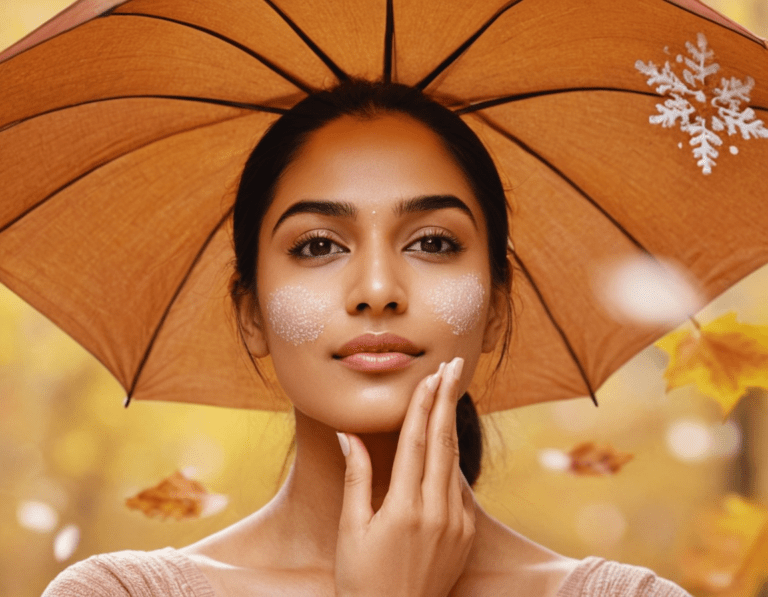
Building the Perfect Skin Care Routine for Acne-Prone Skin
Now that we’ve covered the causes and triggers of acne, let’s dive into the most crucial part: crafting a skincare routine that actually works for your acne-prone skin. This isn’t about a one-time fix but a consistent approach to keep your skin healthy and clear in the long run.
Cleansing
Cleansing is the foundation of any good skincare routine, especially for acne-prone skin. It’s essential to remove dirt, oil, makeup, and pollutants that can clog your pores and contribute to breakouts. However, it’s equally important to choose a gentle cleanser that won’t strip your skin of its natural oils, as this can lead to overproduction of sebum and worsen acne.
- Choose the right cleanser: Look for cleansers that are labeled as “non-comedogenic” (meaning they won’t clog pores) and “oil-free.” Depending on your skin type, you might prefer a foaming cleanser (for oily skin), a gel cleanser (for combination skin), or a cream cleanser (for dry skin). Popular options in India include Cetaphil Gentle Skin Cleanser, Neutrogena Oil-Free Acne Wash, and Plum Green Tea Pore Cleansing Face Wash.
- Double cleanse if you wear makeup: If you wear makeup, double cleansing is a must. Start with an oil-based cleanser or micellar water to remove makeup, followed by your regular cleanser to cleanse your skin thoroughly.
- Cleanse twice daily: Wash your face twice a day, once in the morning and once in the evening, to keep your skin clean and prevent breakouts. Avoid over-washing, as this can strip your skin’s natural oils and cause irritation.
Exfoliation
Exfoliation is the process of removing dead skin cells from the surface of your skin. It’s a crucial step for acne-prone skin as it helps to unclog pores, prevent breakouts, and improve skin texture.
- Types of exfoliants: There are two main types of exfoliants: chemical and physical. Chemical exfoliants use acids (like salicylic acid or glycolic acid) to dissolve dead skin cells, while physical exfoliants use scrubs or brushes to manually slough them off.
- Choose the right exfoliant: If you have acne-prone skin, chemical exfoliants are often gentler and less irritating than physical scrubs. Look for products containing salicylic acid (BHA), which can penetrate deep into pores to unclog them, or glycolic acid (AHA), which can help to smooth out rough skin texture.
- Exfoliate 1-2 times a week: Exfoliating too often can irritate your skin, so start with 1-2 times a week and see how your skin reacts. You can gradually increase the frequency if your skin tolerates it.
Toning
Toning is often an overlooked step in skincare routines, but it can play a significant role, especially for acne-prone skin. Toners help to remove any remaining dirt or impurities after cleansing, balance your skin’s pH levels, and prepare it for the next steps in your routine.
- Choose alcohol-free toners: Alcohol can be very drying and irritating for acne-prone skin, so it’s best to avoid toners that contain it. Instead, look for alcohol-free toners with soothing and hydrating ingredients like rosewater, aloe vera, or chamomile.
- Look for active ingredients: Some toners contain active ingredients like witch hazel (which has astringent properties), niacinamide (which helps to regulate oil production), or salicylic acid (which can help to prevent breakouts). Choose a toner that addresses your specific skin concerns.
- Apply toner with a cotton pad: After cleansing, soak a cotton pad with toner and gently swipe it across your face and neck. Avoid the eye area.
- Popular toners in India: Some popular toner options in India include Plum Chamomile & White Tea Calming Antioxidant Toner, Biotique Bio Cucumber Pore Tightening Toner, and Minimalist PHA 3% + Biotic Toner.
Treatment
This is where you target your acne directly. Topical treatments are applied to the skin and can contain a variety of active ingredients that help to fight acne-causing bacteria, reduce inflammation, and unclog pores.
- Common topical treatments: Some of the most common topical treatments for acne include:
- Benzoyl peroxide: Kills acne-causing bacteria and helps to reduce inflammation. Available in various concentrations (2.5%, 5%, 10%).
- Salicylic acid: Exfoliates the skin, unclogs pores, and reduces inflammation. Available in cleansers, toners, and spot treatments.
- Retinoids: (like adapalene, tretinoin, and tazarotene) increase cell turnover, unclog pores, and reduce inflammation. Can be irritating for some, so start with a low concentration and use as directed by a dermatologist.
- Consult a dermatologist: If you have severe or persistent acne, it’s always best to consult a dermatologist. They can assess your skin type and recommend the most appropriate treatment for your individual needs. This may involve prescription medications like topical or oral antibiotics, or hormonal therapy.
A Note on Spot Treatments
Spot treatments are targeted treatments that you apply directly to individual pimples. They usually contain a higher concentration of active ingredients than your regular treatments and can help to reduce the size and redness of pimples quickly. However, it’s important to use them sparingly and as directed, as overuse can irritate your skin.
Let me know when you’re ready for the next section!
Moisturizing
Yes, even oily and acne-prone skin needs moisturizer! Many people with acne-prone skin shy away from moisturizers, fearing that they will clog pores and worsen breakouts. However, moisturizing is a crucial step in any skincare routine, as it helps to maintain your skin’s natural barrier function, prevent water loss, and keep your skin hydrated and healthy.
- Why moisturizing matters: When your skin is dehydrated, your oil glands can go into overdrive, producing even more sebum to compensate for the lack of moisture. This can lead to clogged pores and increased acne. Moisturizing helps to regulate oil production, soothe irritated skin, and prevent dryness and flakiness.
- Choose the right moisturizer: If you have acne-prone skin, look for oil-free, non-comedogenic moisturizers that won’t clog your pores. Gel-based or water-based moisturizers are often a good choice, as they are lightweight and easily absorbed by the skin. Some popular options in India include Neutrogena Hydro Boost Water Gel, Plum Green Tea Mattifying Moisturizer, and Simple Kind to Skin Hydrating Light Moisturizer.
- Look for hydrating ingredients: Ingredients like hyaluronic acid, glycerin, and ceramides can help to hydrate your skin and strengthen its barrier function. Aloe vera and niacinamide are also excellent choices for soothing irritated skin and reducing inflammation.
Apply moisturizer after cleansing and treatment: After cleansing your face and applying any topical treatments, gently massage a small amount of moisturizer into your skin. Use upward strokes and avoid rubbing or pulling, as this can irritate your skin.
Sun Protection
Sun protection is a non-negotiable step in any skincare routine, especially for acne-prone skin. The sun’s harmful UV rays can damage your skin, worsen acne, and cause post-inflammatory hyperpigmentation (PIH), which are the dark spots that often linger after a pimple has healed.
- Importance of sunscreen: Sunscreen protects your skin from UV damage, which can break down collagen and elastin, leading to premature aging. It also helps to prevent inflammation and reduce the risk of skin cancer.
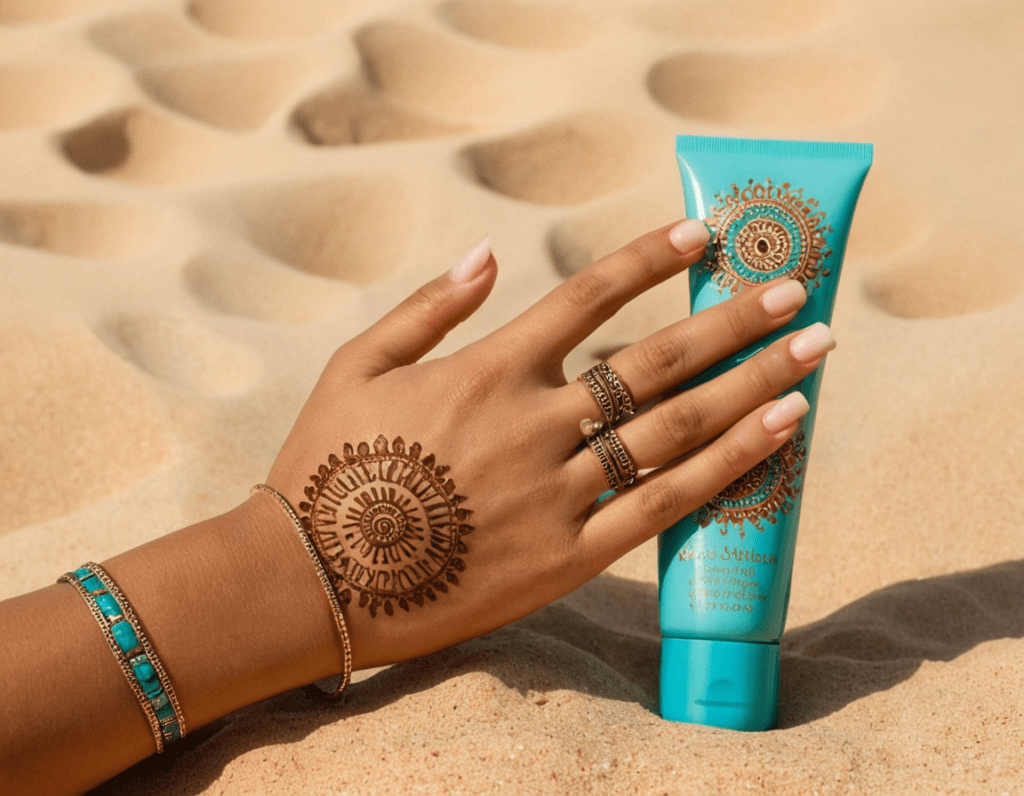
- Choose broad-spectrum sunscreen: Look for a broad-spectrum sunscreen that protects against both UVA and UVB rays. UVA rays are responsible for premature aging, while UVB rays cause sunburn. Choose a sunscreen with an SPF of 30 or higher for adequate protection.
- Consider your skin type: If you have oily or acne-prone skin, choose a sunscreen that is labeled as “oil-free” or “non-comedogenic.” Gel-based or water-based sunscreens are often a good choice, as they are lightweight and less likely to clog pores. Some popular options in India include La Shield Sunscreen Gel SPF 40 PA+++, Re’equil Ultra Matte Dry Touch Sunscreen Gel SPF 50 PA++++, and Biotique Bio Sandalwood Ultra Soothing Face Lotion SPF 50+ UVA/UVB Sunscreen. Check out our Best Sunscreen protection creams.
Apply sunscreen daily: Apply sunscreen generously to all exposed areas of your skin, including your face, neck, ears, and hands. Reapply every two hours, or more often if you are sweating or swimming.
Home Remedies for Acne: Natural Solutions from Your Kitchen
While over-the-counter and prescription treatments can be effective for acne, many natural remedies can also help soothe and heal your skin. These remedies often use ingredients readily available in your kitchen and are a gentler, more affordable alternative for some. Here are a few popular options, particularly well-suited for Indian skin:
Turmeric
Turmeric, a staple in Indian cuisine, is also renowned for its anti-inflammatory and antibacterial properties. Curcumin, the active compound in turmeric, can help to reduce inflammation and redness associated with acne.
How to use:
- Mix a teaspoon of turmeric powder with a few drops of water or honey to form a paste.
- Apply the paste to the affected areas and leave it on for 10-15 minutes.
- Rinse it off with lukewarm water and pat your skin dry.
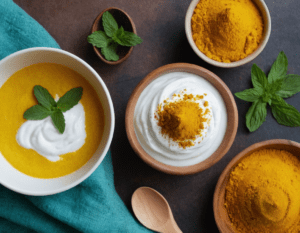
Honey
Honey is a natural humectant, meaning it helps to attract and retain moisture in your skin. It also has antibacterial properties that can help to fight acne-causing bacteria.
How to use:
- Apply a thin layer of raw honey to your face.
- Leave it on for 15-20 minutes.
- Rinse it off with lukewarm water and pat your skin dry.
Aloe Vera
Aloe vera is known for its soothing and cooling properties, making it a great choice for irritated and inflamed skin. It also helps to hydrate and moisturize your skin, which can be beneficial for acne-prone skin.
How to use:
- Extract fresh aloe vera gel from a leaf or use a store-bought product.
- Apply a thin layer of aloe vera gel to your face.
- Leave it on for 15-20 minutes or overnight.
- Rinse it off with lukewarm water and pat your skin dry.
You can also try Eloway Aloe Vera Moisturizing Gel for excellent results.
Neem
Neem, a traditional Indian medicinal plant, has potent antibacterial and anti-inflammatory properties. It can help to reduce acne lesions, soothe irritated skin, and prevent future breakouts.
How to use:
- Grind a few neem leaves into a paste.
- Apply the paste to the affected areas and leave it on for 15-20 minutes.
- Rinse it off with lukewarm water and pat your skin dry.
Important Note: While home remedies can be helpful, it’s crucial to patch test them on a small area of your skin before applying them to your entire face. If you experience any irritation or allergic reaction, discontinue use immediately.
Lifestyle Changes for Clear Skin
While a consistent skincare routine is essential, don’t underestimate the impact of lifestyle factors on your skin health. In India, where our diets and daily habits can be quite unique, these factors play an even more significant role.
Diet and Acne
The connection between diet and acne is a topic of ongoing research, but some studies suggest that certain foods can influence your skin’s oil production and inflammation levels.
- Low Glycemic Index (GI) Diet: Foods with a high GI, like white bread, sugary drinks, and processed snacks, cause a rapid spike in blood sugar, which can trigger hormonal fluctuations and increase sebum production. Opting for low-GI foods like whole grains, fruits, vegetables, and legumes can help regulate blood sugar levels and potentially reduce acne breakouts.
- Anti-Inflammatory Foods: Chronic inflammation can worsen acne, so incorporating anti-inflammatory foods into your diet can be beneficial. Include plenty of fruits and vegetables rich in antioxidants, such as berries, leafy greens, and tomatoes. Fatty fish like salmon and mackerel are also great sources of omega-3 fatty acids, which have anti-inflammatory properties.
- Probiotics: Research suggests that gut health can influence skin health. Probiotics, found in yogurt, fermented foods like kimchi and sauerkraut, and probiotic supplements, can help balance your gut bacteria and potentially reduce acne.
Stress Management
Stress is a major trigger for acne. When you’re stressed, your body produces more cortisol, a hormone that can increase oil production and inflammation. Finding healthy ways to manage stress is essential for maintaining clear skin.
- Yoga and Meditation: These practices can help to reduce stress, lower cortisol levels, and promote relaxation, all of which can benefit your skin.
- Exercise: Regular exercise is another excellent stress reliever. It also helps to improve blood circulation, which can deliver oxygen and nutrients to your skin cells, promoting a healthy complexion.
- Sleep: Adequate sleep is crucial for skin health. During sleep, your body repairs and regenerates cells, including skin cells. Aim for 7-8 hours of quality sleep each night.
Hydration
Staying hydrated is essential for overall health, including skin health. Drinking plenty of water helps to flush out toxins, transport nutrients to your skin cells, and maintain skin elasticity. Aim to drink at least 8 glasses of water per day.
Incorporating these lifestyle changes alongside a consistent skincare routine can significantly improve your skin health and reduce acne breakouts. Remember, consistency is key! It may take some time to see results, so be patient and persistent with your efforts.
Bonus Tips for Acne-Prone Skin
Beyond the essential steps of a skincare routine and lifestyle adjustments, there are several additional tips you can incorporate to further enhance your acne-fighting arsenal:
Don’t Pick or Pop Pimples
As tempting as it may be, avoid picking or popping pimples. Doing so can push bacteria deeper into your skin, worsen inflammation, and increase the risk of scarring. Instead, let the pimple heal naturally or use a spot treatment to speed up the process.
Wash Makeup Brushes Regularly
Makeup brushes can harbor bacteria, dirt, and oil, which can transfer to your skin and contribute to breakouts. Make it a habit to clean your makeup brushes and sponges regularly. You can use a mild soap or a brush cleanser to wash them, and allow them to dry completely before using them again.
Change Pillowcases Frequently
Your pillowcase can collect oil, sweat, and bacteria from your skin and hair. This can transfer back to your face while you sleep, potentially clogging pores and triggering breakouts. Aim to change your pillowcase 2-3 times a week, or even daily if you have severe acne.
Avoid Touching Your Face
Our hands come into contact with countless surfaces throughout the day, accumulating dirt, oil, and bacteria. Touching your face can transfer these impurities to your skin, leading to clogged pores and breakouts. Be mindful of how often you touch your face and try to break the habit.
Manage Hair Care
If you have oily hair, the oil can drip down onto your face and contribute to breakouts. Wash your hair regularly and consider using a gentle, oil-free shampoo and conditioner. If you have long hair, tie it back while you sleep to prevent it from rubbing against your face.
Choose Non-Comedogenic Makeup
If you wear makeup, choose products that are labeled as non-comedogenic, meaning they won’t clog your pores. Look for oil-free foundations, powders, and blushes. Always remove your makeup thoroughly before bed.
Consider Professional Treatments
If you’re struggling with persistent or severe acne, don’t hesitate to seek professional help. Dermatologists can offer a variety of treatments, including prescription medications, chemical peels, and light therapy, that can significantly improve your skin.
By following these additional tips along with your regular skincare routine and lifestyle modifications, you can take a holistic approach to managing your acne-prone skin and achieve the clear, healthy complexion you desire.
FAQ: Your Acne Questions Answered
Let’s address some of the most common questions surrounding acne and skincare, especially those relevant to the Indian context:
- How long does it take to see results from a skincare routine?
Skincare isn’t a magic wand, and results take time. Generally, you can expect to see some improvement in your acne within 4-6 weeks of starting a consistent skincare routine. However, complete clearing of acne may take several months, depending on the severity of your condition. Patience and consistency are key!
- Can I wear makeup if I have acne?
Yes, you can wear makeup even if you have acne, but it’s crucial to choose the right products. Look for non-comedogenic and oil-free makeup that won’t clog your pores. Remove your makeup thoroughly before bed to avoid breakouts. Additionally, avoid sharing makeup brushes and sponges, as they can harbor bacteria.
- Is there a special skincare routine for men?
The basic principles of skincare are the same for both men and women. However, men tend to have thicker skin and larger pores, so they may benefit from using products specifically formulated for men’s skin. Additionally, men should be mindful of shaving habits, as improper shaving can irritate the skin and worsen acne.
- Should I see a dermatologist for my acne?
If your acne is severe, persistent, or causing you distress, it’s advisable to consult a dermatologist. They can assess your skin, diagnose the type of acne you have, and recommend the most appropriate treatment options. This may include prescription medications, chemical peels, or other procedures that can help you achieve clear skin.
- Can home remedies completely cure acne?
While home remedies can be helpful in managing mild acne and soothing irritated skin, they are not a replacement for a proper skincare routine or professional treatment. If your acne is severe or doesn’t respond to home remedies, it’s essential to seek professional help.
- Can stress cause acne?
Yes, stress can absolutely trigger or worsen acne breakouts. When you’re stressed, your body produces more cortisol, a hormone that can increase oil production and inflammation, leading to clogged pores and pimples. Managing stress through yoga, meditation, exercise, and other relaxation techniques can help improve your skin health.
- Can the Indian climate worsen acne?
The humid climate in many parts of India can indeed worsen acne. The high humidity levels can increase oil production, making your skin more prone to breakouts. It’s essential to adapt your skincare routine to the weather conditions and choose products that are lightweight and oil-free.
- Is acne a sign of poor hygiene?
No, acne is not a sign of poor hygiene. In fact, over-washing your face can strip your skin of its natural oils and worsen acne. Acne is a complex condition influenced by various factors, including genetics, hormones, and environmental factors. Maintaining good hygiene is important for overall skin health, but it’s not the sole factor in preventing or treating acne.
Remember, everyone’s skin is different, and what works for one person may not work for another. It’s essential to listen to your skin, experiment with different products and remedies, and find what works best for you. Don’t hesitate to seek professional help if needed.
Sources:
Conclusion: Your Journey to Clear, Healthy Skin
Embarking on a journey to clearer skin requires patience, consistency, and the right knowledge. It’s a process that involves understanding your skin, adopting a tailored skincare routine, and making conscious lifestyle choices. It’s about recognizing that achieving healthy skin isn’t just about aesthetics; it’s about embracing self-care and prioritizing your well-being.
Key Takeaways
Let’s recap some of the key takeaways from this guide:
- Understand Your Skin: Learn what causes acne and identify your specific triggers to tailor your approach.
- Consistent Skincare: Establish a daily skincare routine with cleansing, exfoliation, toning, treatment, and moisturizing.
- Sun Protection: Never skip sunscreen, even on cloudy days, to protect your skin from damage and hyperpigmentation.
- Home Remedies: Embrace natural solutions like turmeric, honey, aloe vera, and neem to soothe and heal your skin.
- Lifestyle Matters: Adopt a healthy diet, manage stress, get enough sleep, and stay hydrated to support your skin from within.
- Bonus Tips: Don’t pick pimples, clean your makeup brushes, change pillowcases frequently, avoid touching your face, and consider professional treatments if needed.
Be Patient and Persistent
Remember, achieving clear skin doesn’t happen overnight. It’s a journey that requires dedication and patience. Some treatments might take weeks or even months to show noticeable results. Don’t get discouraged by temporary setbacks; stay consistent with your routine and trust the process.
Seek Professional Help
If your acne is severe, persistent, or causing you distress, don’t hesitate to seek professional help. Dermatologists can assess your skin, diagnose your condition, and recommend the most appropriate treatment options, including prescription medications or procedures that can significantly improve your skin. Explore our wide range of Skin Care Products of Best Quality and Great prices.
Your Skin, Your Confidence
Clear skin can boost your confidence and overall well-being. By following the tips and strategies outlined in this guide, you can take control of your skin and achieve the healthy, glowing complexion you deserve. Remember, you’re not alone in this journey. Millions of people in India struggle with acne, and with the right information and support, you can overcome it too.
Embrace your skin, nurture it with care, and celebrate your progress along the way. Your journey to clear skin starts now!
Share Your Story and Connect with Others!
We’d love to hear about your own experiences with acne and skincare. Have you tried any of the tips or remedies mentioned in this guide? What has worked best for you? Share your story, ask questions, and connect with others in the comments below. Let’s create a supportive community to empower each other on our journey to clear skin!
Your Skin Deserves the Best!
Don’t let acne hold you back. Take the first step towards clear skin today by implementing these tips and tricks. Remember, consistency is key, and professional help is always available if you need it. You deserve to feel confident and comfortable in your own skin, so embrace the journey and let your inner beauty shine through!
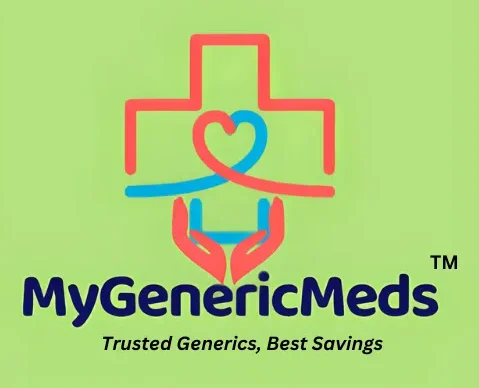
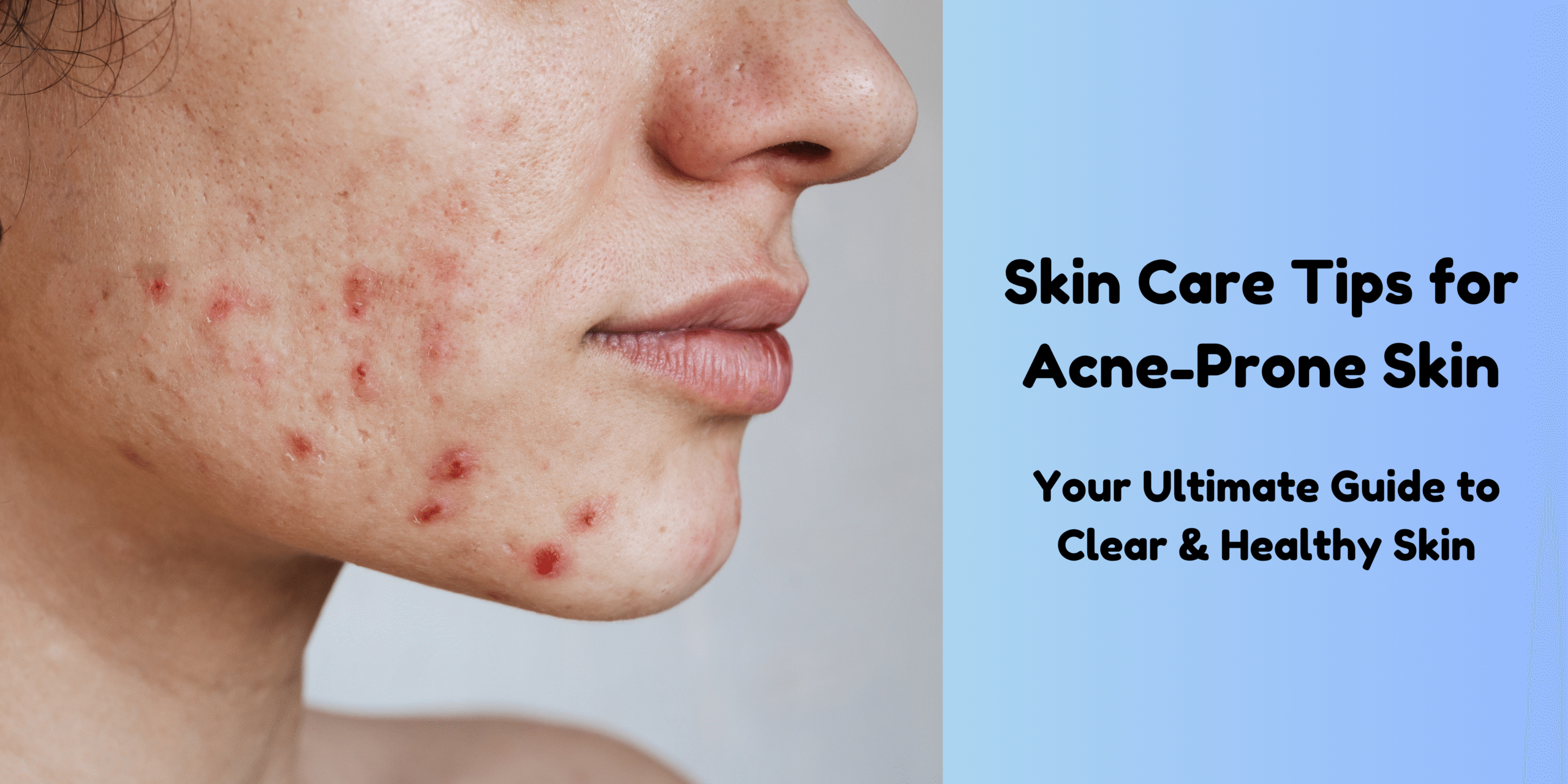

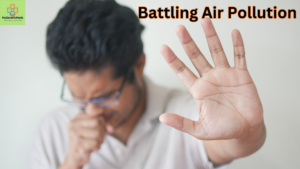


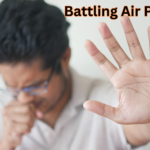
[…] Best Skin Care Tips for Acne-prone Skin […]
[…] Also check out: Best Skin Care Tips for Acne-Prone Skin: Your Ultimate Guide to Clear, Healthy Skin in India […]